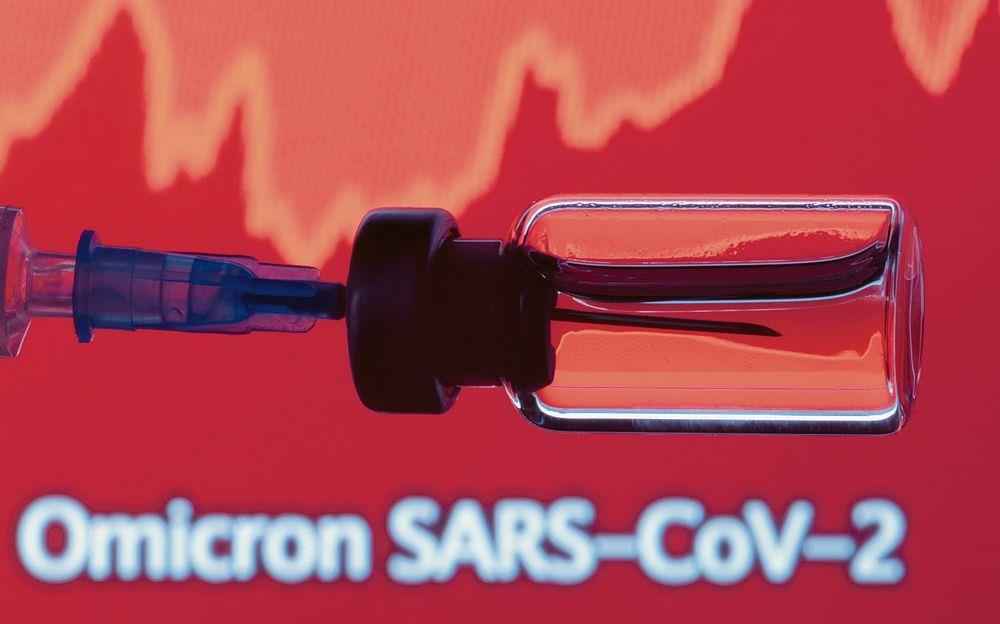
Photo for representation purposes. Reuters
Johannesburg, December 23
The omicron variant of the Covid appears to be having a less severe impact than the earlier variants, a study in South Africa has found.
The omicron variant was first identified by South African scientists last month and it has sparked extensive research into its impact.
"In South Africa, omicron is behaving in a way that is less severe," said Cheryl Cohen, professor in epidemiology at the University of the Witwatersrand, who shared results of a research titled 'Early Assessment of the Severity of the omicron variant in South Africa' on Wednesday in an online briefing by the National Institute for Communicable Diseases (NICD).
"Likely this is generalisable to other countries in the region in sub-Saharan Africa, which have similar very high levels of previous infections," Cohen said, adding that the picture might not be similar in countries where there are high levels of vaccination with very low levels of previous infections.
NICD Public Health Specialist Waasila Jassat highlighted how the current fourth wave, largely driven by the omicron virus, was not as severe as the previous waves. "In wave four, we had a huge number of cases in the first four weeks, over 366,000 compared to (the previous waves)." Jassat said only six per cent of the cases in wave four were admitted to hospitals, while previous waves had seen up to 16 per cent of cases being admitted.
"In terms of the number of (hospital) admissions, in wave four, it was around 21,000, whereas in wave two, about 19,000 and in wave three, about 16,000. So that huge increase in cases did not really translate into a huge increase in admissions. The percentage of cases that are admitted is much lower than in previous waves," Jassat said.
The percentage of patients with serious infections had also halved from previous admissions. Six per cent of patients in the current wave had died of Covid complications, while around 22 per cent had died in the preceding wave which was largely driven by the delta variant.
The average length of a hospital stay had also halved to about three days, Jassat said.
"The lower proportion of severe diseases we are seeing in the fourth wave could be due to a number of factors, including the level of prior immunity from people who have already got vaccinated, or it could also be due to the lower virulence of omicron, but we need more studies to be able to unpack these things," Jassat said.
NICD Head of the Division of Public Health Surveillance and Response Michelle Groome believed that the province of Gauteng, the economic hub of South Africa had passed the peak of the fourth wave. PTI
Join Whatsapp Channel of The Tribune for latest updates.



























